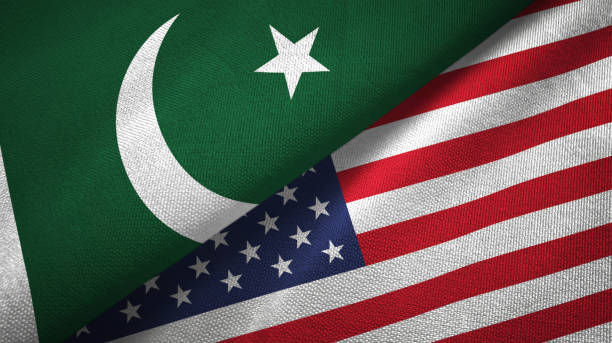- By Ahsan Ansari
The recently concluded historic trade agreement between Pakistan and the United States marks the beginning of a new chapter in bilateral relations and presents a golden opportunity for Pakistan’s economic growth. For decades, Pakistan–US relations revolved around security and military cooperation. However, this trade agreement has laid the foundation for a sustainable and positive shift in these ties.
The agreement is based on cooperation in key sectors such as energy, oil exploration, investment, and industrial development. In particular, the partnership of American companies for the discovery and development of Pakistan’s underground oil reserves is being considered the cornerstone of this agreement. If successfully implemented, this agreement will not only strengthen Pakistan economically but also allow it to emerge as a new energy hub in South Asia.
The history of Pakistan–US relations is full of ups and downs. During the Cold War, Pakistan was a close ally of the US, but events like the Taliban’s return in Afghanistan, the war on terror, and various sensitive issues caused significant strains in relations. In the last decade, the US prioritized its ties with India, often viewing Pakistan with suspicion.
However, after the withdrawal of US forces from Afghanistan in 2021, the strategic importance of the region shifted once again, and Pakistan’s geographical and strategic relevance re-emerged on the global stage. Following this, Pakistan gave central importance to economic diplomacy in its foreign policy, and this trade agreement is a practical manifestation of that policy.
Under the agreement, Pakistan and the United States will launch joint ventures in the oil sector. American companies will provide advanced technology and investment to discover and utilize natural oil and gas reserves within Pakistan. In addition, cooperation is expected in sectors such as infrastructure, alternative energy sources, industrial development, and export promotion.
Former US President Donald Trump announced that both countries would work together to develop Pakistan’s vast natural resources. His remark, “Perhaps one day Pakistan will be selling oil to India,” highlighted the strategic importance of the agreement. It envisions a future that could bring major changes to South Asian politics and economy.
Notably, the United States has imposed the lowest tariff rates on goods imported from Pakistan compared to other major trading partners like India, Canada, and Mexico. This preferential trade policy reflects America’s serious interest in expanding economic ties with Pakistan and strengthening its economy. According to data from the US Trade Commission, many products imported from Pakistan enjoy duty-free or highly concessional tariff rates — a major economic concession.
If the agreement is effectively implemented, it could open the door for significant investment in Pakistan. With development in the energy sector, industrial production will increase, and thousands of new employment opportunities will be created.
Pakistan has long suffered from energy crises. This agreement can help Pakistan utilize its natural resources and pave the way toward energy self-sufficiency.
Stronger trade ties with the United States will give Pakistan better access to global markets, resulting in increased exports and improvement in foreign exchange reserves.
This agreement can once again position Pakistan as a key player in South Asia. Especially at a time when the US is experiencing trade tensions with India, Pakistan is in an ideal position to fill this strategic vacuum.
This agreement has provided a new foundation for Pakistan–US relations, moving away from a purely security-based partnership to one grounded in economic cooperation. In the past, the relationship largely revolved around military and intelligence collaboration. Now, economic growth, investment, and joint energy projects are becoming the central focus.
The agreement shows that both countries are now seeing each other not merely through a lens of geographical or military interests but as partners in shared economic development. This is not only a positive trend but also a diplomatic success for Pakistan.
Certainly, every major agreement comes with its challenges. Pakistan must ensure transparency, political stability, and policy continuity to maintain the confidence of American investors. Bureaucratic hurdles, legal complications, and delays in implementation could hinder progress. Environmental protection in the energy sector and safeguarding the rights of local communities must also be ensured.
The recent trade agreement between Pakistan and the United States has the full potential to set a new direction in bilateral ties. This agreement is not just limited to energy or the economy — it can help establish a sustainable, balanced, and mutually beneficial relationship that fosters peace, development, and prosperity in the region.
If Pakistan makes full use of this opportunity and implements the agreement with transparency and integrity, it could, in the coming years, secure a prominent place in the global energy landscape and elevate its international stature.
(Writer is a Free Lance Writer/Columnist and can be reached: aahsan210@gmail.com)




